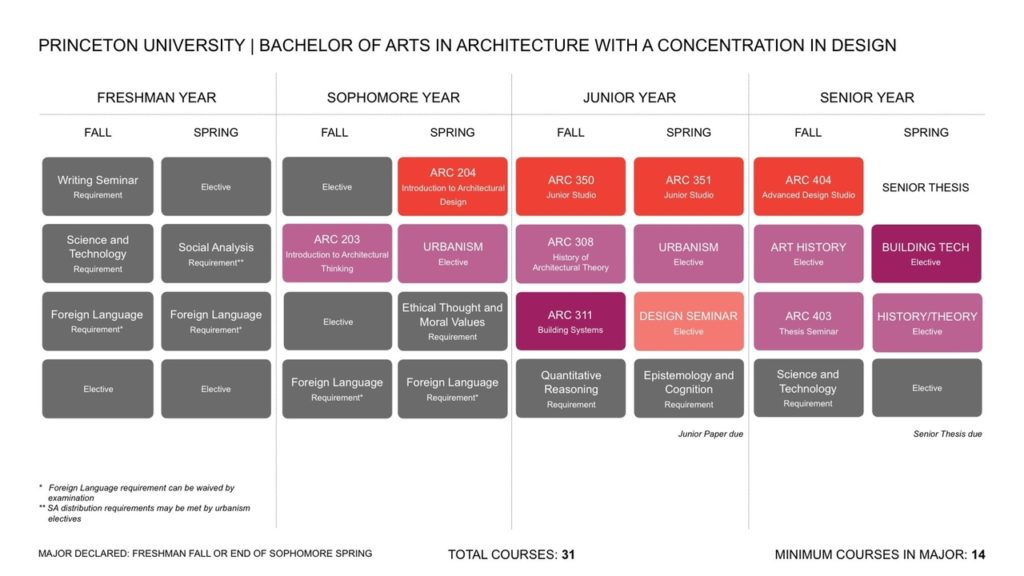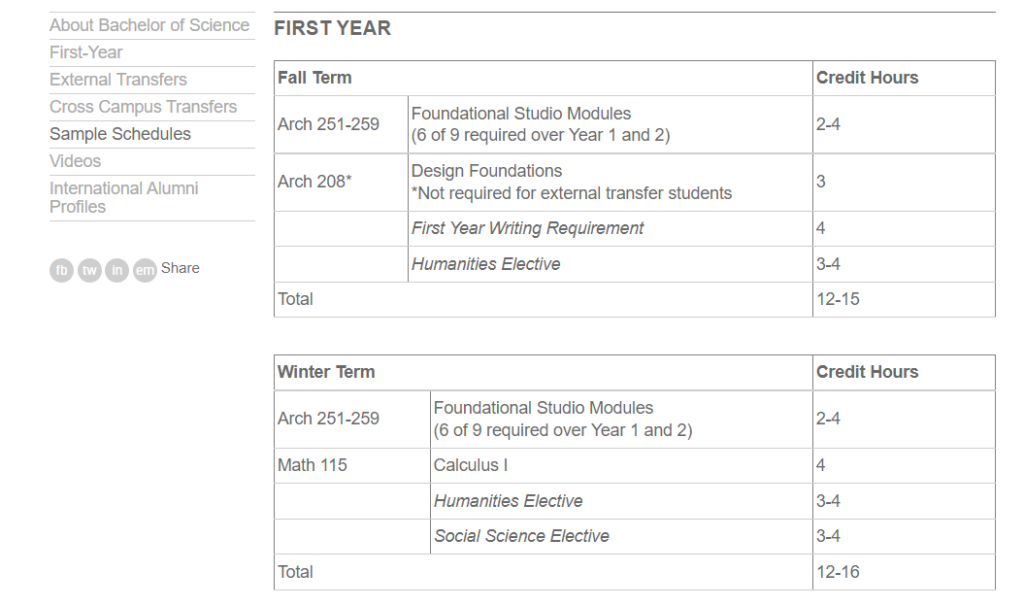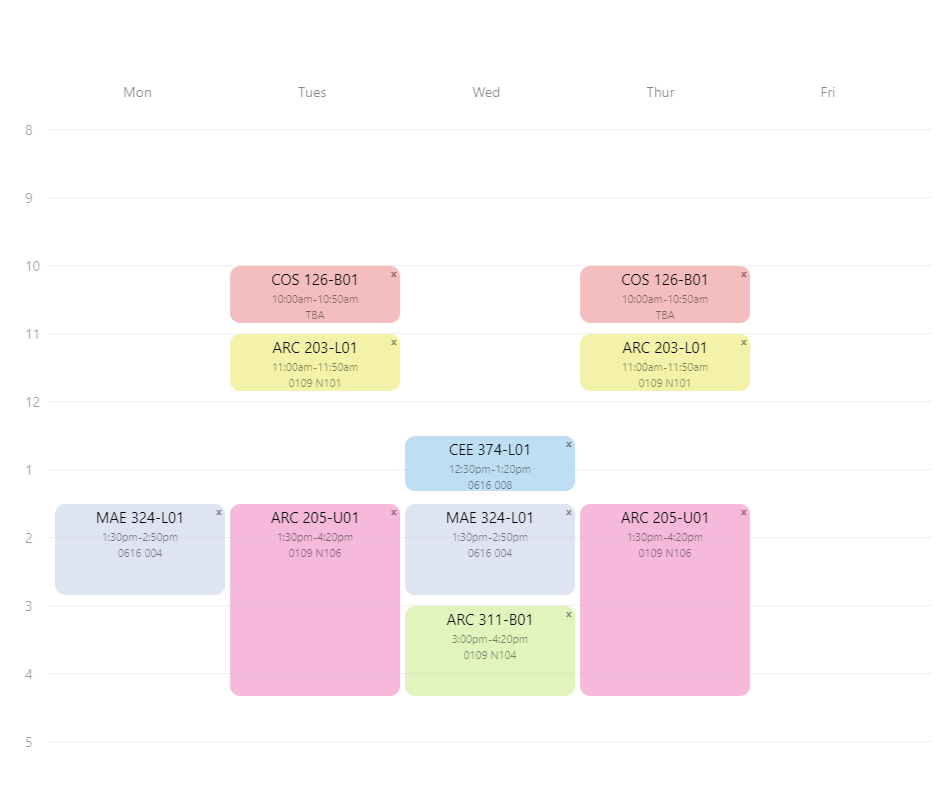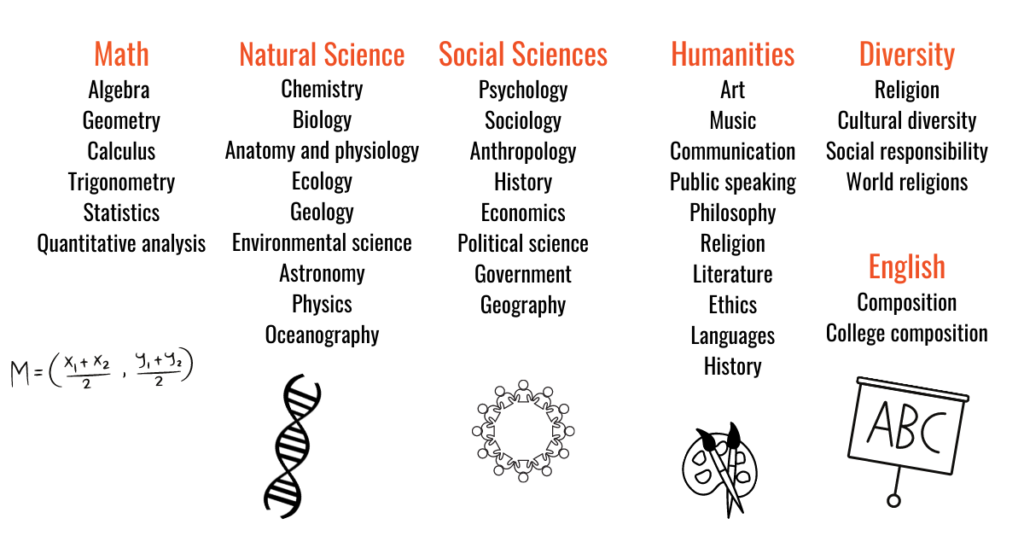
Photo by Ben Duchac on Unsplash
If you’re starting college, there are several things you’ll need to do first to achieve good results. Among them are planning your overall schedule, sorting the classes you will be taking this semester, deciding upon the number of extracurricular activities you can squeeze in, determining your working hours (if you have a part-time job), and so much more.
The key aspect of all this is your classes, of course. As a freshman, you’ll have to understand how the system of credits works and how to pick and handle classes to be able to cope with the workload. In this article, we’ve covered the most popular questions related to college classes and schedules. With this information, you’ll be able to plan your classes and navigate through the semester without stress. We hope so!
-
How Many Classes Do You Take in College?
-
What Classes Are Required in College?
-
How to Know What Classes to Take in College?
-
How Long Are College Classes?
-
College Class Schedule Example
-
Benefits of Taking College Classes in High School
-
What Happens If I Fail a Class in College?
-
Can You Retake a Class in College?
-
What Are the Hardest College Classes?
-
What to Wear to Class in College?
-
How Do Online College Classes Work?
 How Many Classes Do You Take in College?
How Many Classes Do You Take in College?
Before you decide upon the exact number of classes you want to take, you need to understand how the system of college credits in the U.S. works.
College Credits
College credits are a measurement system used to evaluate students’ effort and hours spent studying during a semester.
Here is how credits are calculated:
1 credit for the semester usually equals 1 hour of classroom work + 2 hours of homework per week x 15–16 weeks/semester.

Some courses require 1 credit, but most courses require 3–4 credits to be completed. This means that to earn 3 credits in the semester, you will have to attend 3 classes and spend 6 hours of homework time per week on average (on one subject).
To graduate, you’ll have to earn a certain amount of credits. A Bachelor’s degree requires about 120 credits completed by a student over a span of 4 years. It is roughly translated into 30 credits per year or 15 credits per semester.

![]()
With 3 credits being an average requirement for most subjects, you will be taking 5 courses every semester.
![]()
What Is the Minimum Number of Credits Required?
The usual minimum for a full-time undergraduate student is 12 credits per semester (four three-credit courses); everything below this is considered part-time. Senior students, however, may be taking more courses and, therefore, have more credits to complete (16-19 and more).
Graduate students are usually considered full-time at nine credits.
Depending on the complexity of subjects and other factors, your schedule may turn out to be quite packed. Therefore, don’t overestimate your potential. To earn the required 3 credits for just 1 course, you’ll need to attend 3 live classes and spend 6 hours doing your homework. With 15 credits, you will be busy 15 hours in class and up to 45 hours studying on your own. Keep that in mind when you plan your classes.
Here is how the workload is estimated depending on the number of credits you need to complete:
|
Number of Semester Credit Hours |
Course Load Level |
|
12-14 |
Light |
|
15 |
Average |
|
16-19 |
Heavy |
Most colleges and universities in the U.S. require a standard number of credits for any given subject, so the credit system is pretty uniform. Here is the visual representation of the curriculum of the Undergraduate Program in Architecture from Princeton University:

 What Classes Are Required in College?
What Classes Are Required in College?
The college curriculum includes three types of classes: the Core Curriculum (also known as General Education, or Gen Ed, or Shared Experience), Free Electives, and the courses directly related to a student’s major—the Area of Study.
Core Curriculum
The core curriculum usually includes courses that students must take regardless of their major. Here are some of the subjects that may be offered to choose from as your core curriculum classes:
This set of courses serves as an undergraduate degree foundation and is meant to ensure that students gain knowledge in a wide range of subjects.
Depending on the college, students may be required to take a certain number of core courses. There is usually a list where students can choose from. There are some compulsory subjects; however, in some cases, students may opt-out of specific courses if they have completed their Advanced Placement credit in high school.
![]()
The Core Curriculum takes a half or a third of a student’s degree: somewhere between 42–60 semester-based college credits from the total of 120 credits.
![]()
Free Electives
Free electives are basically any subjects that students are interested in and would like to take. There are no limitations here; therefore, a student majoring in STEM subjects can take an Art class for fun, or a business student major can add a public speaking course to strengthen their skill set.
![]()
Free electives usually take up to 30 credits of a degree.
![]()
Area of Study
![]() The Area of Study courses are the ones that constitute your major; they are the ones that are directly related to your future profession. They are required to finish college and obtain a Bachelor’s degree.
The Area of Study courses are the ones that constitute your major; they are the ones that are directly related to your future profession. They are required to finish college and obtain a Bachelor’s degree.
For instance, a student majoring in Civil Engineering will be taking the following Area of Study courses:
- Design of Steel Structures
- Construction Engineering
- Introduction to Railroad Transportation
- Reinforced Concrete I
- Geotechnical Engineering
- Advanced Civil Engineering Materials
- etc.
![]()
Overall, 30–40 credits are given to the Area of Study courses.
![]()
 How to Know What Classes to Take in College?
How to Know What Classes to Take in College?
Since every degree has specific requirements, what you need to understand first is the career path you want to pursue. If you want to become a structural engineer, you will have to focus on the subjects closely related to this profession, even if they are not the ones you excel at.
If Medieval literature and marine ecology are your other spheres of interest, you are free to add them to your curriculum if your schedule allows it. However, taking them alone won’t help you become a bridge designer or a civil engineer.
As we’ve already covered, a good part of your college classes will consist of the core subjects, so some part of your classes will be predetermined. Next, you will need to add elective classes that will help you improve and strengthen your professional skills, and you’ll also need to add the area of study subjects.
In the U.S., the education system is flexible, and students can choose their courses. We strongly recommend that you understand the flow of the degree at the very beginning. When you know which introductory courses lead to the advanced ones, you will understand how to set your schedule in an optimal way and how to squeeze the Equine Welfare and Management course you’ve contemplated taking because you like horses so much.
 How Long Are College Classes?
How Long Are College Classes?
College classes are longer than high-school ones, so you may need a bit of time to get accustomed to the new schedule.
![]()
A typical college class lasts from 50 minutes to 2 hours on average, depending on the type of class (lecture, lab work, etc.) and the difficulty of the material
![]()
Also, several factors influence the length of the class over the semester:
- A class that requires many credits lasts longer than the one that takes fewer credit hours.
- The class length may also differ depending on the semester when it’s taken.
- The frequency of a class per week also contributes to the class length.
- More difficult classes also last longer during the semester as they require more hours for the material to sink in.
Here are a few examples:
- A class that requires 3 credits can meet either three times a week for 50 minutes or twice a week for 1 hour and 35 minutes.
- A more advanced class that takes 4 credit hours to complete will meet for at least 2 hours or more.
- Summer classes are usually very intensive and can meet for 2+ hours several times a week, depending on the course complexity.
 College Class Schedule Example
College Class Schedule Example
Typically per week, a full-time college student spends on average about 15 hours in class and studies for additional 30 hours on their own.
Yet, as we’ve already mentioned, the number of college classes may vary depending on the major and college year, so two students of the same college and major can have different schedules.
Here are a few college class schedule examples from different colleges.
The first one is “one first-year business student’s weekly schedule” provided by Ithaca College as a sample for their prospective students:

Taubman College of Architecture and Urban Planning also offers their prospective students information about the credit hours required for each course:

With the help of Coursicle schedule planner, we’ve tried to compile a sample schedule for a prospective student of Princeton’s Program in Architecture and Engineering based on the course information provided on the university’s website:

 Benefits of Taking College Classes in High School
Benefits of Taking College Classes in High School
Yes, you can take some of the college classes in high school. Doing this will hardly help you master a hectic college schedule in advance; however, there are several benefits.
- First and foremost, you will learn how to manage your time effectively. Former high-school students get overwhelmed with the amount of work to be done and the necessity to manage their time and do everything in time. High school is way more restrictive, and many things are already predetermined, so taking a college course in high school is a great way to develop discipline and time management skills.
- Secondly, you can explore your interests and check what career path is right for you. Taking a college course related to your hobby can either prove that you really want to develop and grow in this field professionally or decide that it’s not your cup of tea after all. It saves your time and energy and keeps you from making a mistake and wasting time studying for a major you are not really interested in/good at.
- Thirdly, you’ll be able to take fewer classes in college. In the first two years of your college, you’ll mostly have general education classes; therefore, you can try completing an English composition, college algebra, or a foreign language class in high school. Not all colleges accept credits from such classes; therefore, you need to check this option in advance. However, taking a college class in high school may help you start studying your major subjects sooner and even graduate earlier.
- If you take several college classes in high school and manage to graduate earlier, you’ll be able to spend less on education and save more.
Options of Taking a College Class in High School
There are several ways you can complete college courses in high school:
Advanced Placement (AP) Classes
One of the options for a high schooler to get General Ed credits is by taking Advanced Placement (AP) classes or an International Baccalaureate (IB) program and passing the exams. To understand whether the college of your choice accepts passing scores in exchange for credits, check the information on the official websites.
Dual Enrollment
Some schools offer an option of enrolling in local community college classes. If you successfully complete these classes and get credits, you can transfer them later to your college.
CLEP Tests
One more option to get credits in advance is taking exams in 34 introductory subjects. These are paid exams ($84 each), and the passing scores can later be applied for your college credits. However, not all colleges or universities accept them in exchange for credits. Therefore, check the College Board policy regarding the exams you are considering.
 What Happens If I Fail a Class in College?
What Happens If I Fail a Class in College?
Failing a class in college is not a great thing. Apart from being embarrassed, you’ll have to deal with the consequences. Knowing what to expect may serve as a motivation never to appear in a situation when you have to face them. Here is the list of what you may expect in case you fail a class:
Your GPA Gets Affected

If your next objective is to get into grad school, you should be careful, as a failing grade affect your GPA and reduce your chances dramatically. While your college transcript will hardly be ever of interest to your prospective employer, there are positions where it may be taken into consideration.
Financial Aid Problems

If you’ve received financial aid, it was most likely to be given to you under a certain condition. A failed class may be one of the things in the list of obligations to pay back the aid you have received. Alternatively, you may face the suspension of any federal aid. We strongly recommend consulting your financial advisor and learning the terms of your financial aid in advance to understand the impact of any negative grade on your financial aid eligibility.
Potential Dismissal

Different colleges have different policies regarding failed classes. High education is a very competitive environment; therefore, learn the policy of your college at the very beginning of your studies. It is hardly likely for a college to expel a student after just one failed grade, but most colleges can consider dismissal after multiple failings.
We do hope that such a scenario never happens to you. However, failing a class, especially several classes, can be an indicator (both to you and your school) that you might have chosen the wrong major and need to reconsider.
In case you appear in a situation when you failed a class, we recommend using it as a chance to take a better look at how you manage your studies and try to understand your motives and potential. Perhaps, you need to study more and cut down on your extracurricular activities. Or you might reconsider the choice of your major in general and take a different path. Changing the direction as early as possible is way better than doing it in your senior year.

Photo by Brooke Cagle on Unsplash
 Can You Retake a Class in College?
Can You Retake a Class in College?
The short answer is yes. The major reasons for retaking a college class may be:
- Trying to get a better grade and improve your GPA
- Getting an F
- Being required to retake a course in the college where you can’t transfer your credit
However, colleges have different policies on who can retake classes and how the grades are calculated.
- Your first grade in the course can be replaced with your second grade, making your GPA potentially higher.
- Alternatively, your grades can be averaged—which is less favorable but still a good scenario if you failed a class and are retaking it in hopes of getting a higher grade.
We recommend learning all about your college’s policy on retaking classes at the beginning of your first college year to know what to expect in any situation.
 What Are the Hardest College Classes?
What Are the Hardest College Classes?
Depending on your knowledge, skills, and abilities, you may find some courses easier and others more challenging. However, there are some courses that most students find intimidating. Here are some of the most commonly “hard” and “overwhelming” college courses:
Organic Chemistry
#1 among all reported college classes, organic chemistry seems to be the hardest of all—with the highest failure rate, lowest class grade average, and more retakes than any other science subject. One of the reasons many students find organic chemistry so difficult is its cumulative nature. Once you fail to grasp something at one point, you can’t move on to the next one, as all new knowledge is built on top of what you’ve already learned. Therefore, you just can’t move on if the previous material wasn’t learned. Besides, you need to commit hours of consistent studying and a lot of effort, which does make organic chemistry quite an intimidating class.
Thermodynamics
Next in our list, thermodynamics is also considered an especially hard subject by many students. First, you will only succeed if you know how to study and memorize a lot of information. Secondly, you will either learn how to do it or will be struggling in class a lot. Those who manage to conquer thermodynamics, however, won’t have a problem getting into a graduate problem.
Calculus
The main objective of calculus is to teach you a new set of tools for problem-solving. Regardless of what you may expect, it is not the endpoint of what you’ve already studied (algebra, geometry, trigonometry, etc.) but rather the beginning of a new branch of math. This course will probably be a problem if you struggle with math in high school. Yet, calculus is pretty tough for most students, so don’t think that it’s only your problem. To make it easier, do your best with math in high school, as you will need to remember a lot of it, especially trigonometry.
Quantum Physics/Mechanics
Another class that requires a strong math background is quantum physics/mechanics. It explains how atoms and subatomic particles work. Many students find it hard, as it is very abstract, and trying to envision how tiny objects that you cannot see but can only imagine work. Such a probabilistic approach is not something you can master easily. Besides, you need to memorize many formulas, and at the end of the day, it usually comes to whether you get it or not.
Philosophy
If you hate uncertainty, you will find this subject hard. It is very counterintuitive, but unlike maths, where rules help you structure all the counterintuitive stuff, there are no rules in philosophy. It is the area where you’ll be stuck with unfamiliarity, complexity, and a lot of uncertainty. No members and no concrete answers; instead, there are numerous abstract concepts. Yet, we still urge you not to be fazed and give it a try.
 What to Wear to Class in College?
What to Wear to Class in College?

Photo by Eliott Reyna on Unsplash
There are no dress code requirements in U.S. colleges and universities; therefore, students usually wear jeans, t-shirts, and all sorts of casual clothes. It may come as a surprise to international students who may expect uniforms.
However, students in the U.S. dress very informally, and they only wear suits and ties for very formal occasions or if they come to classes from office work. Comfy clothes are the most likely choice for most college classes, as being comfortable in class is more important than anything else. After all, your classes are your priority.
However, we don’t recommend going to school in your pajamas every day; after all, this is also the place where you meet with other people, so don’t be sloppy. In other words, you can wear whatever you like to college: comfy clothes or smart clothes if it makes you feel good and confident.

 How Do Online College Classes Work?
How Do Online College Classes Work?
Colleges and universities have already adapted to fit students’ needs during the pandemics, and more educational institutions offer hybrid learning options. Many courses are offered to be taken online, which means that classes are accessible via an app on a smartphone, tablet, or laptop.
Why Is It a Good Thing?
- Online classes give flexibility. You can attend lectures from anywhere and communicate with your professors and classmates as if you are in a classroom. Yet, you don’t need to travel to the class.
- It is easier to cope with the assignments. You can both read everything online and submit assignments from your phone or laptop faster.
- You can balance your work and study time. If you have a part-time job or a family with kids to take care of, having your classes online is way more convenient, as it eliminates the need to commute and helps you organize your schedule in a way that’s best for you.
How to Attend Online Classes?
- To attend an online class, you only need a smartphone, laptop, or tablet and Internet access.
- You also need to either access the school’s learning platform or get an app. That’s basically it.
![]()
Online learning has already become the norm in many high education institutions, but we can expect that the in-app online learning experience will only become more popular. That’s why colleges and universities are working hard to improve their learning apps and platforms’ functionality.
College is so exciting and at the same time so challenging. We hope that our article will help you get the answers to the most common college class-related questions. We also hope that your college experience will be less stressful when you know how the system of credits works and how to manage your time and plan your schedule effectively.
Additionally, our articles on the Top Easiest, and Top Hardest College Classes provide valuable insights into the experiences of other students. These articles can assist you in making informed choices when selecting the most suitable classes for your academic journey.





